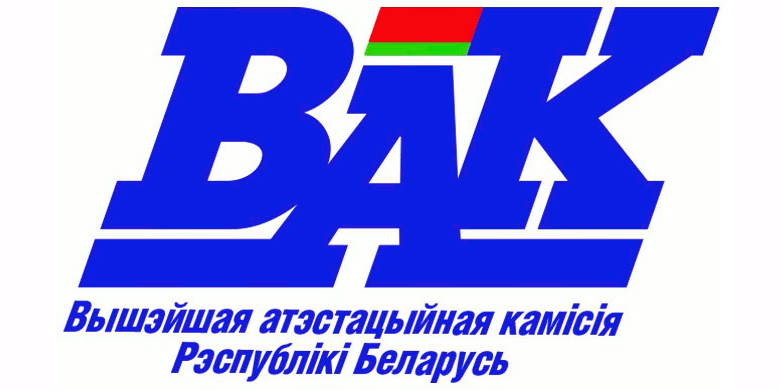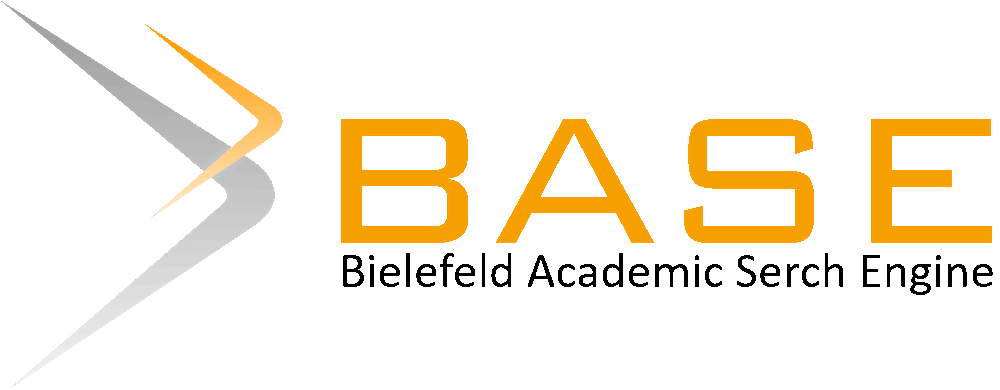Quality of the institutional system and the COVID-19 pandemic: empirical analysis
Ключевые слова:
COVID-19, смертность по причине COVID-19, пандемия, Worldwide Governance Indicators, доверие, «Право голоса и подотчетность», «Качество Регулирования», «Продолжительность жизни в годах при рождении», ВВП на душу населенияАннотация
Government responses to the COVID-19 pandemic have failed to stop the spread and reduce the risk of the disease, even in countries with developed healthcare systems. The pandemic is causing a serious crisis with significant social and economic consequences. The research was carried out under conditions of incompleteness and possible unreliability of the initial information. However, the obtained results make it possible to draw the attention of the scientific community to the aspects of combating the COVID-19pandemic and to expand the ability to confront the challenges posed by current and other possible pandemics. The strength of the relationship was established between the mortality rate due to COVID-19 per 100 thousand population, including the healthy population, (DEATHS / 100K POP.) and Worldwide Governance Indicators (“Voice and Accountability” and "Regulatory Quality"); between the mortality rate due to COVID-19 per 100 thousand population, including the healthy population, ( (DEATHS / 100K POP.) and the indicator Life expectancy at birth, total years (2018); between the indicator “Voice and Accountability” and the indicator Life expectancy at birth, total years; between the indicator "Regulatory Quality" and the indicator Life expectancy at birth. It is concluded that the mortality rate from the COVID-19 pandemic depends on the age structure of the population, which in turn depends on the level of quality of the institutional system.
Библиографические ссылки
Abate G., Brauw de A., Hirvonen K., Ethiopia Strategy Support Program Paper 145, June. International Food Policy Research Institute Available at: https://ebrary.ifpri.org/digital/collection/p15738coll2/id/133766/rec/25 (accessed: 02.04.2021).
Anderson K., Ivanic M., Martin W., The Economics of Food Price Volatility. National Bureau of Economic Research Available at: https://www.nber.org/system/files/chapters/c12818/c12818.pdf (accessed: 02.04.2021).
Brauner J., Mindermann S., Sharma M., Johnston D. Inferring the effectiveness of government interventions against COVID-19 Science. Sciencemag Available at: https://science.sciencemag.org/content/371/6531/eabd9338 (accessed: 02.04.2021).
COVID-19 food trade policy tracker // International Food Policy Research Institute Available at: https://www.ifpri.org/project/covid-19-food-trade-policy-tracker (accessed: 02.04.2021).
Cross, J. Summary of emergent infectious disease: coronavirus COVID-19 focus, compiled 19 March 2020. Presentation by Cross, John W. 2020 // ResearchGate Available at: https://www.researchgate.net/publication/340060965_Summary_of_Emergent_Infectious_Disease_Coronavirus_COVID-19_Focus_Compiled_19_March_2020 (accessed: 02.04.2021).
D. K. Shebeko Belarusian economic model: assessment and possible ways of transformation // Economy and banks. 2017, no. 2. Available at: https://cyberleninka.ru/article/n/belarusian-economic-model-assessment-and-possible-ways-of-transformation (accessed: 31.03.2021).
Gentilini U., Social protection and jobs responses to COVID-19: A real-time review of country measures // Open Knowledge Repository. World Bank Available at: https://openknowledge.worldbank.org/handle/10986/33635?locale-attribute=es (accessed: 02.04.2021).
Gerszon Mahler D., Lakner C., Castaneda Aguilar R., Wu H. Updated estimates of the impact of COVID-19 on global poverty // WorldBank Blogs Available at: https://blogs.worldbank.org/opendata/updated-estimates-impact-covid-19-global-poverty (accessed: 02.04.2021).
Hidrobo M., Kumar N., Palermo T., Peterman A., Roy S., “Gender-sensitive social protection: A critical component of the COVID-19 response in low- and middle-income countries”. International Food Policy Research Institute Available at: http://ebrary.ifpri.org/utils/getfile/collection/p15738coll2/id/133701/filename/133912.pdf (accessed: 02.04.2021).
Joint EVS/WVS 2017-2020 data-set release // World Values Survey URL: https://www.worldvaluessurvey.org/WVSContents.jsp (date of access: 02.04.2021).
Laborde D., Martin W., Swinnen J., Vos R. COVID-19 risks to global food security // Science. Sciencemag Available at: https://science.sciencemag.org/content/369/6503/500 (accessed: 02.04.2021).
Laborde D., Martin W., Vos R., “Estimating the poverty impact of COVID-19: The MIRAGRODEP and POVANA frameworks,” IFPRI Technical Note // ResearchGate Available at: https://www.researchgate.net/publication/342068871_Estimating_the_Poverty_Impact_of_COVID-19_The_MIRAGRODEP_and_POVANA_frameworks_1 (accessed: 02.04.2021).
MORTALITY ANALYSES // Coronavirus Resource Center. John Hopkins University URL: https://coronavirus.jhu.edu/data/mortality (accessed: 02.04.2021).
Sanyaolu A., Okorie C., Hosein Z. Global Pandemicity of COVID-19: Situation Report as of June 9, 2020 // SAGE Journals Available at: https://journals.sagepub.com/doi/10.1177/1178633721991260 (accessed: 02.04.2021).
Shabeka D.K. Estimation of the impact of institutions on the economy of Belarus Sustainable development of the economy: state, problems, prospects: collection of works of the XIII international scientific and practical conference. Pinsk: PolesSU, 2019.
Shabeka D.K. Quality assessment of the institutional systems of Estonia, Lithuania, Poland and Belarus [Economy and banks]. 2019, no. 1, Available at: https://cyberleninka.ru/article/n/quality-assessment-of-the-institutional-systems-of-estonia-lithuania-poland-and-belarus (accessed: 31.03.2021).
The Worldwide Governance Indicators (WGI) project // Worldwide Governance Indicators Available at: https://info.worldbank.org/governance/wgi/ (accessed: 02.04.2021).
Villela, DAM. The value of mitigating epidemic peaks of COVID-19 for more effective public health responses // Revista da Sociedade Brasileira de Medicina Tropical Available at: https://www.scielo.br/scielo.php?pid=S0037-86822020000100500&script=sci_arttext (accessed: 02.04.2021).].
WHO Director-General’s opening remarks at the media briefing on COVID-19 —11 March 2020 // World Health Organization Available at: https://www.who.int/director-general/speeches/detail/who-director-general-s-opening-remarks-at-the-media-briefing-on-covid-19---11-march-2020 (accessed: 02.04.2021
World Bank Open Data // The World Bank Data URL: https://data.worldbank.org/ (date of access: 02.04.2021).
Shabeka D.K. Institucional'nye aspekty razvitija cifrovoj jekonomiki v Respublike Belarus' [Institutional aspects of the development of the digital economy in the Republic of Belarus] // Innovacii i investicii [Innovation and investment]. 2019, no.1, (In Russian) Available at: https://cyberleninka.ru/article/n/institutsionalnye-aspekty-razvitiya-tsifrovoy-ekonomiki-v-respublike-belarus (accessed: 31.03.2021)
Shabeka D.K. Ocenka institucional'nyh faktorov jekonomicheskogo razvitija Belarusi [Assessment of the institutional factors of economic development in Belarus] Sbornik izbrannyh statej po materialam nauchnyh konferencij GNII "Nacrazvitie" [Collection of selected articles based on the materials of scientific conferences of the State Research Institute "National Development"]. Saint-Petersburg: SRI “Natsrazvitie”, 2019. (In Russian)
Shabeka D.K. Scenarii razvitija belorusskoj jekonomiki: institucional'nyj analiz [Scenarios for the development of the Belarusian economy: institutional analysis] Jekonomika: vchera, segodnja, zavtra [Economy: yesterday, today, tomorrow]. 2019, no. 1 A. (In Russian)
Shebeko K.K., Shabeka D.K. Institucional'noe doverie kak faktor jekonomicheskogo razvitija: jempiricheskij analiz [Institutional Trust as a Factor of Economic Development: An Empirical Analysis]. Jekonomika i banki [Economy and banks]. 2020, no. 2. (In Russian)URL: https://cyberleninka.ru/article/n/institutsionalnoe-doverie-kak-faktor-ekonomicheskogo-razvitiya-empiricheskiy-analiz (accessed: 31.03.2021).
Shebeko K.K., Shabeka D.K. Institucional'nye lovushki i modernizatsia belorusskoj ekonomiki [Institutional traps and modernization of Belarusian economy]. Jekonomika i banki [Economy and banks]. 2013, no 2. (In Russian). URL: https://cyberleninka.ru/article/n/institutsionalnye-lovushki-i-modernizatsiya-belorusskoy-ekonomiki (accessed: 31.03.2021).
Список литературы
Abate G. Ethiopia Strategy Support Program Paper 145, June / G. Abate, A. de Brauw, K. Hirvonen, // International Food Policy Research Institute URL: https://ebrary.ifpri.org/digital/collection/p15738coll2/id/133766/rec/25. – Дата доступа: 02.04.2021.
Anderson K. The Economics of Food Price Volatility / K. Anderson, M. Ivanic, W. Martin // National Bureau of Economic Research URL: https://www.nber.org/system/files/chapters/c12818/c12818.pdf – Дата доступа: 02.04.2021.
Brauner J. Inferring the effectiveness of government interventions against COVID-19 / J. Brauner, S. Mindermann, M. Sharma, D. Johnston // Science. Sciencemag URL: https://science.sciencemag.org/content/371/6531/eabd9338 – Дата доступа: 02.04.2021.
COVID-19 food trade policy tracker // International Food Policy Research Institute URL: https://www.ifpri.org/project/covid-19-food-trade-policy-tracker – Дата доступа: 02.04.2021.
Cross, J. Summary of emergent infectious disease: coronavirus COVID-19 focus, compiled 19 March 2020. Presentation by Cross, John W. 2020 // ResearchGate – Режим доступа: https://www.researchgate.net/publication/340060965_Summary_of_Emergent_Infectious_Disease_Coronavirus_COVID-19_Focus_Compiled_19_March – Дата доступа: 02.04.2021.
Shebeko, D. K. Belarusian economic model: assessment and possible ways of transformation / D. K Shebeko // Экономика и банки. – 2017. – № 2. – Режим доступа: https://cyberleninka.ru/article/n/belarusian-economic-model-assessment-and-possible-ways-of-transformation – Дата доступа: 31.03.2021.
Gentilini, U. Social protection and jobs responses to COVID-19: A real-time review of country measures / U. Gentilini // Open Knowledge Repository. World Bank – Режим доступа: https://openknowledge.worldbank.org/handle/10986/33635?locale-attribute=es – Дата доступа: 02.04.2021.
Gerszon, Mahler D. Updated estimates of the impact of COVID-19 on global poverty / Mahler D. Gerszon, C. Lakner, Aguilar R. Castaneda, H. Wu // WorldBank Blogs – Режим доступа: https://blogs.worldbank.org/opendata/updated-estimates-impact-covid-19-global-poverty – Дата доступа: 02.04.2021.
Hidrobo, M. Gender-sensitive social protection: A critical component of the COVID-19 response in low- and middle-income countries / M. Hidrobo, N. Kumar, T. Palermo, A. Peterman, S. Roy // International Food Policy Research Institute – Режим доступа: http://ebrary.ifpri.org/utils/getfile/collection/p15738coll2/id/133701/filename/133912.pdf – Дата доступа: 02.04.2021.
Joint EVS/WVS 2017-2020 data-set release // World Values Survey – Режим доступа: https://www.worldvaluessurvey.org/WVSContents.jsp – Дата доступа: 02.04.2021.
Laborde, D.COVID-19 risks to global food security / D. Laborde, W. Martin, J. Swinnen, R. Vos // Science. Sciencemag – Режим доступа: https://science.sciencemag.org/content/369/6503/500. – Дата доступа: 02.04.2021.
Laborde, D. Estimating the poverty impact of COVID-19: the MIRAGRODEP and POVANA frameworks, IFPRI Technical Note / D.Laborde, W. Martin, R. Vos // ResearchGate – Режим доступа: https://www.researchgate.net/publication/342068871_Estimating_the_Poverty_Impact_of_COVID-19_The_MIRAGRODEP_and_POVANA_frameworks_1. – Дата доступа: 02.04.2021.
MORTALITY ANALYSES // Coronavirus Resource Center. John Hopkins University – Режим доступа: https://coronavirus.jhu.edu/data/mortality – Дата доступа: 02.04.2021.
Sanyaolu A. Global Pandemicity of COVID-19: Situation Report as of June 9, 2020 / A. Sanyaolu, C. Okorie, Z. Hosein // SAGE Journals – Режим доступа: https://journals.sagepub.com/doi/10.1177/1178633721991260 – Дата доступа: 02.04.2021.
Shabeka, D. K. Estimation of the impact of institutions on the economy of Belarus / D. K. Shabeka // Sustainable development of the economy: state, problems, prospects: collection of works of the XIII international scientific and practical conference. – Pinsk: PolesGU, 2019.
Shabeka, D. K. Quality assessment of the institutional systems of Estonia, Lithuania, Poland and Belarus / D. K. Shabeka // Экономика и банки. 2019. – № 1. – Режим доступа: https://cyberleninka.ru/article/n/quality-assessment-of-the-institutional-systems-of-estonia-lithuania-poland-and-belarus – Дата доступа: 31.03.2021.
The Worldwide Governance Indicators (WGI) project // Worldwide Governance Indicators – Режим доступа: https://info.worldbank.org/governance/wgi/ – Дата доступа: 02.04.2021.
Villela, DAM. The value of mitigating epidemic peaks of COVID-19 for more effective public health responses // Revista da Sociedade Brasileira de Medicina Tropical – Режим доступа: https://www.scielo.br/scielo.php?pid=S0037-86822020000100500&script=sci_arttext – Дата доступа: 02.04.2021.
WHO Director-General’s opening remarks at the media briefing on COVID-19 – 11 March 2020 // World Health Organization – Режим доступа: https://www.who.int/director-general/speeches/detail/who-director-general-s-opening-remarks-at-the-media-briefing-on-covid-19---11-march-2020. – Дата доступа: 02.04.2021.
World Bank Open Data // The World Bank Data– Режим доступа: https://data.worldbank.org/ – Дата доступа: 02.04.2021.
Шебеко, Д. К. Институциональные аспекты развития цифровой экономики в Республике Беларусь / Д. К. Шебеко // Инновации и инвестиции. – 2019. – № 1. – Режим доступа: https://cyberleninka.ru/article/n/institutsionalnye-aspekty-razvitiya-tsifrovoy-ekonomiki-v-respublike-belarus – Дата доступа: 31.03.2021.
Шебеко, Д. К. Оценка институциональных факторов экономического развития Беларуси / Д. К. Шебеко // Сборник избранных статей по материалам научных конференций ГНИИ «Нацразвитие». – СПб: ГНИИ «Нацразвитие», 2019.
Шебеко, Д. К. Сценарии развития белорусской экономики: институциональный анализ / Д. К. Шебеко // Экономика: вчера, сегодня, завтра. – 2019. – № 1А.
Шебеко, К. К. Институциональное доверие как фактор экономического развития: эмпирический анализ / К. К. Шебеко, Д. К. Шебеко // Экономика и банки. – 2020. – № 2. – Режим доступа: https://cyberleninka.ru/article/n/institutsionalnoe-doverie-kak-faktor-ekonomicheskogo-razvitiya-empiricheskiy-analiz – Дата доступа: 31.03.2021.
Шебеко, К. К. Институциональные ловушки и модернизация белорусской экономики / К. К. Шебеко, Д. К. Шебеко // Экономика и банки. – 2013. – № 2. – Режим доступа: https://cyberleninka.ru/article/n/institutsionalnye-lovushki-i-modernizatsiya-belorusskoy-ekonomiki– Дата доступа: 31.03.2021.
Загрузки
Опубликован
Как цитировать
Выпуск
Раздел
Лицензия
Автор предоставляет Редакции журнала на весь срок действия исключительных прав на Произведение следующие права:
1. право на воспроизведение Произведения (опубликование, обнародование, дублирование, тиражирование или иное размножение Произведения) без ограничения тиража экземпляров. При этом каждый экземпляр Произведения должен содержать имя автора Произведения;
2. право на распространение Произведения любым способом;
3. право на включение в составное произведение;
4. право на доведение до всеобщего сведения;
5. на использование метаданных (название, имя автора (правообладателя), аннотации, библиографические материалы и пр.) Произведений путем распространения и доведения до всеобщего сведения, обработки и систематизации, а также включения в различные базы данных и информационные системы.
6. право переуступить на договорных условиях частично или полностью полученные по настоящему договору права третьим лицам без выплаты Автору вознаграждения.
Автор передает права Редакция журналау по настоящему Договору на основе неисключительной лицензии.
Редакция журнала обязуется соблюдать предусмотренные действующим законодательством авторские права, права Автора, а также осуществлять их защиту и принимать все возможные меры для предупреждения нарушения авторских прав третьими лицами.
Территория, на которой допускается использование прав на Произведения, не ограничена.
Автор также предоставляет Редакция журналау право хранения и обработки следующих своих персональных данных без ограничения по сроку:
• фамилия, имя, отчество;
• дата рождения;
• сведения об образовании;
• сведения о месте работы и занимаемой должности;
• сведения о наличии опубликованных произведений литературы, науки и искусства.
Персональные данные предоставляются для их хранения и обработки в различных базах данных и информационных системах, включения их в аналитические и статистические отчетности, создания обоснованных взаимосвязей объектов произведений науки, литературы и искусства с персональными данными и т.п.
Редакция журнала имеет право передать указанные данные для обработки и хранения третьим лицам при условии уведомления о таком факте с предоставлением сведений о третьем лице (наименование и адрес) Автору.
Отзыв согласия на хранение и обработку персональных данных производится Автором путем направления соответствующего письменного уведомления Редакции журнала.
Автор и Редакция журнала несут в соответствии с действующим законодательством Республики Беларусь имущественную и иную юридическую ответственность за неисполнение или ненадлежащее исполнение своих обязательств.
Сторона, ненадлежащим образом исполнившая или не исполнившая свои обязанности, обязана возместить убытки, причиненные другой Стороне, включая упущенную выгоду.
Все споры и разногласия Сторон, вытекающие из условий настоящего Договора, подлежат урегулированию путем переговоров, а в случае их безрезультатности, указанные споры подлежат разрешению в суде в соответствии с действующим законодательством Республики Беларусь.
Расторжение настоящего соглашения возможно в любое время по обоюдному согласию Сторон, с обязательным подписанием Сторонами соответствующего соглашения об этом.
Расторжение настоящего соглашения в одностороннем порядке возможно в случаях, предусмотренных действующим законодательством, либо по решению суда.
Во всем, что не предусмотрено настоящим соглашением, Стороны руководствуются нормами действующего законодательства Республики Беларусь.















.gif)
